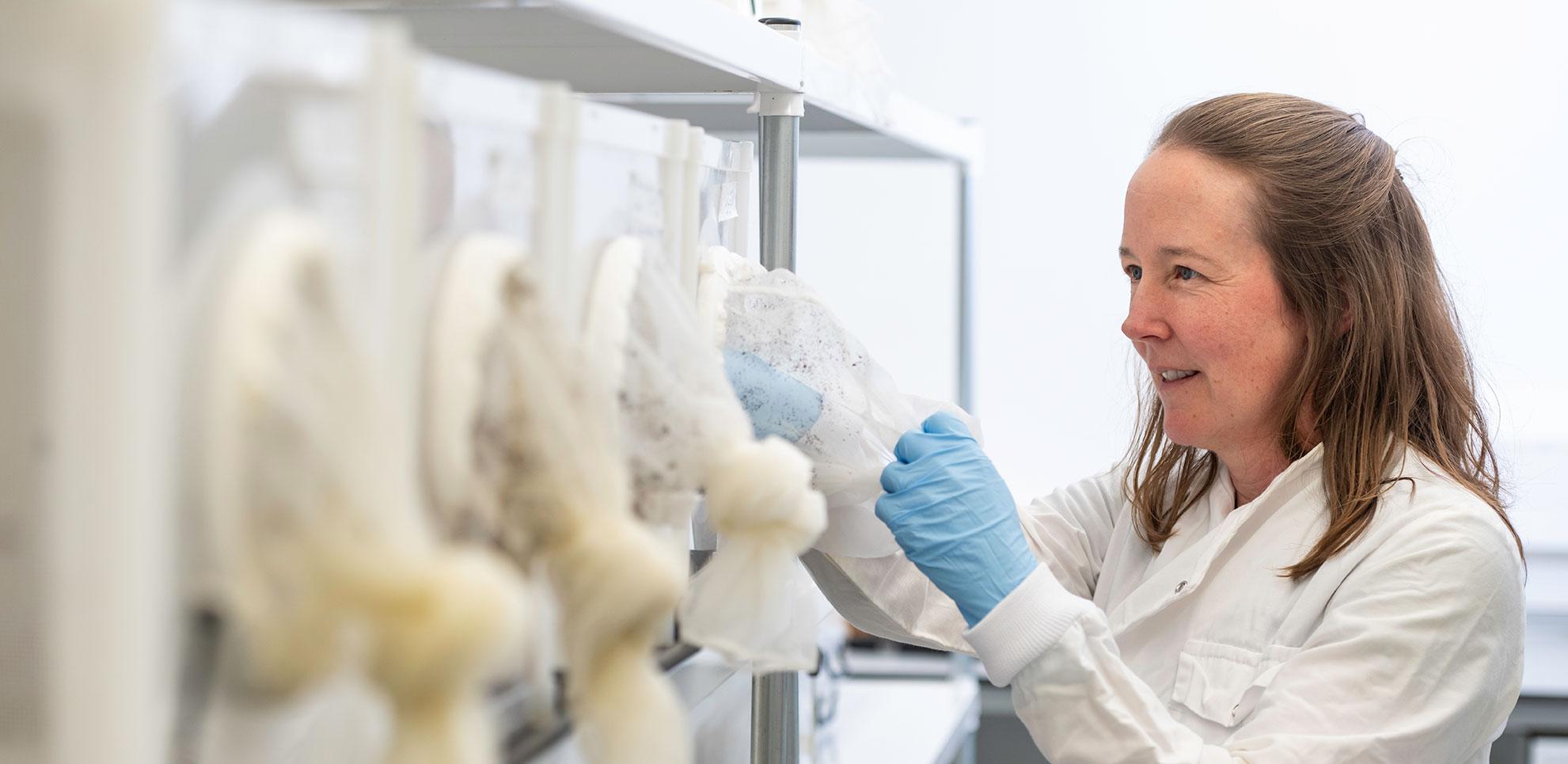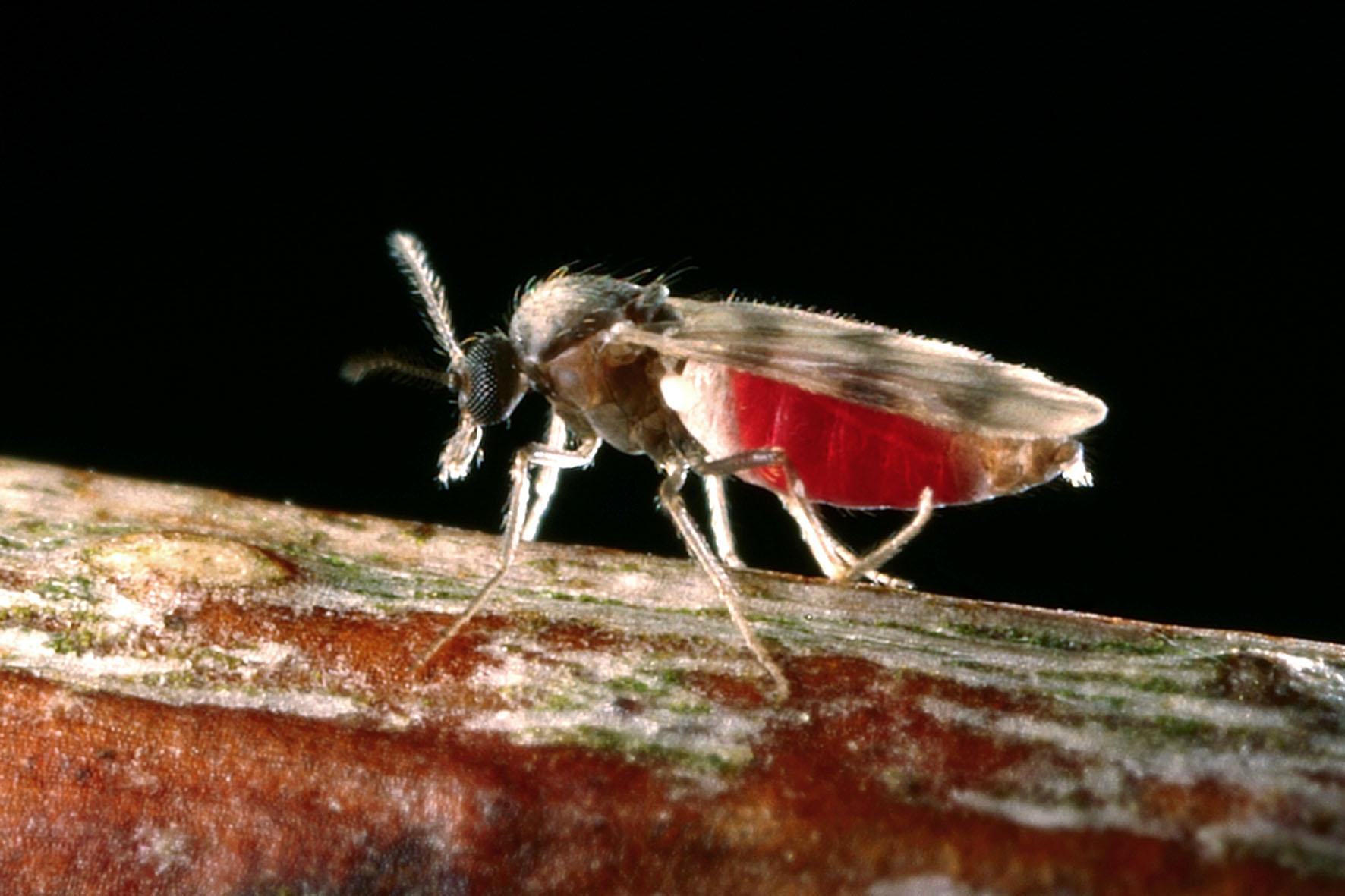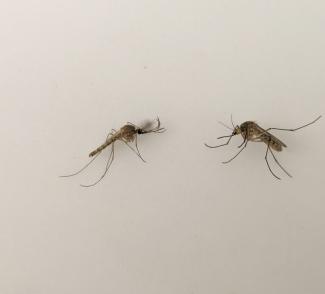Our Insectary facility is dedicated to the rearing and study of insects that transmit viral diseases to livestock and humans.
We provide unparalleled access to colonies of various insect vector species for scientific research, enabling studies on virus transmission between host and vector species, and on the behaviour and control of these disease vectors.
Our Insectary supports crucial research on a wide range of diseases, including those affecting livestock such as bluetongue, African horse sickness, and lumpy skin disease, as well as those with significant human health impacts, such as dengue fever, Zika virus, chikungunya virus, West Nile virus, and Equine encephalitis viruses, addressing both UK-specific and global health challenges.
The facility is equipped for the rearing and maintenance of insect colonies, identification and molecular analysis of field-caught insect species, creation, and maintenance of transgenic insect lines for scientific research, and archiving and storage of field-caught specimens.
Species
We maintain and study a variety of insect species, including:
Biting midges:
- Culicoides sonorensis
- Culicoides nubeculosus
Mosquitoes:
- Aedes aegypti
- Culex quinquefasciatus
Biting flies:
- Stomoxys calcitrans
Specialist facilities
Our Insectary boasts state-of-the-art facilities to support advanced research, including:
- Five temperature and humidity controlled rooms
- Three environmental chambers
- Molecular and field laboratories
- Fluorescent microscope room
- Insect microinjection equipment
- CL2 virus infection suite
UK Culicoides Reference Laboratory
The Insectary serves as a base for the UK Culicoides Reference Laboratory, providing national surveillance of Culicoides biting midges and offering policy advice to the Animal and Plant Health Agency (APHA) and the Department for Environment, Food & Rural Affairs (Defra).
The lab specialises in taxonomy to assess vector distribution and abundance, and conducts ecological field studies to understand the life history traits and behaviour of these insects.
We also offer training for external groups in identification and colony maintenance.
Contact
Matylda Augustyn, Insectary Manager


